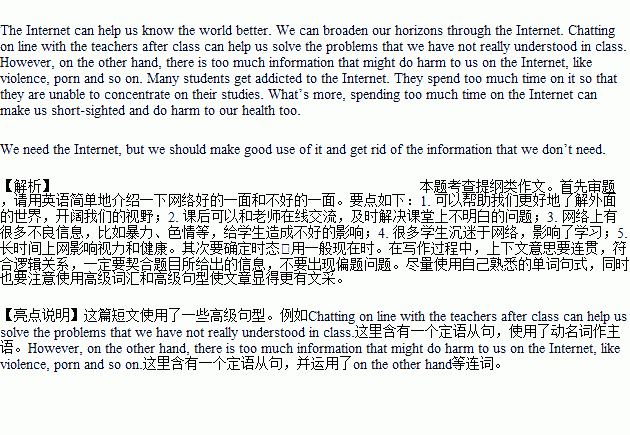题目内容
请用英语简单地介绍一下网络好的一面和不好的一面。要点如下:
1. 可以帮助我们更好地了解外面的世界,开阔我们的视野;
2. 课后可以和老师在线交流,及时解决课堂上不明白的问题;
3. 网络上有很多不良信息,比如暴力、色情等,给学生造成不好的影响;
4. 很多学生沉迷于网络,影响了学习;
5. 长时间上网影响视力和健康。
注意:
1. 短文必须包括所有的内容要点,但不得逐句翻译;
2. 词数:120左右。
参考词汇:开阔视野broaden one’s horizons 暴力violence 色情porn 沉迷 get addicted to
____________________________________________________________________________________________
____________________________________________________________________________________________
____________________________________________________________________________________________
____________________________________________________________________________________________
____________________________________________________________________________________________
____________________________________________________________________________________________
____________________________________________________________________________________________
_________________________________________________________________________

